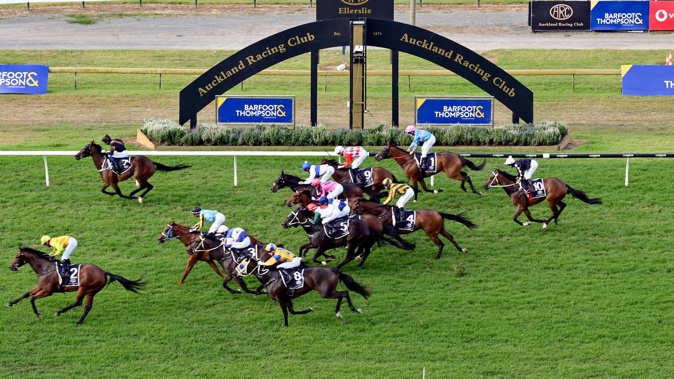
Thoroughbred racing will get a $7 million injection into stakes next season, with the top 20 meetings being targeted to attract more horses and people to the sport.
New Zealand Thoroughbred Racing will announce the increases today, which will include the minimum stake for a thoroughbred race in this country increasing from $12,000 to $14,000.
NZTR will also announce $10 million for much-needed infrastructure work over the next five years.
But the biggest boost will be at the top end and the code's elite 20 days which NZTR has targeted as the bigger source of growth for turnover, crowds and raising awareness of the racing industry among non-regular racegoers.
That will mean the 20 of the best-performing race days will see huge stake increases including a new minimum stake for a group 1 race of $300,000, which will be for any group 1 regardless of what level meeting it is run at.
Group 2 races held at the Iconic or Premier meetings will rise from $110,000 to $140,000; group 3s from $80,000 to $100,000 and Listed races from $60,000 to $80,000.
The group 3 and listed races at the meetings not designated Iconic or Premier will stay at their current levels.
Perhaps even more importantly for owners of non-black type horses the minimum stake at Iconic meetings next season will be $70,000, up from $50,000 and will increase from $40,000 to $50,000 at premier meetings.
While competing at those meetings may sound daunting for many owners the reality is some of the premier meetings this season struggled for full fields and were down on quality toward the end of summer as horse fatigue set in.
The top-end increases follow similar trends not just in racing but sport around the world where the big bang events get much of the attention and budget to create glamour and participation in the hope it will bring new fans and, in racing's case, a renewed ownership base.
But $300,000 minimum group 1s mean New Zealand-trained horses finding it hard to compete at Australia's best carnivals could race 10 times a year here, rarely dipping below that $300,000 minimum per race, especially if they were horses competitive in the 1600m-2000m range.
That means a good New Zealand group 1 horse could race for around $3.5million in stakes next season without needing to leave home.
That could be enough to see genuine superstars use at least one New Zealand-based race as a starting point for their Australian campaigns while those who struggle at group 1 level in Australia could have their racing careers in New Zealand prolonged.
The increases mean the average stake for a thoroughbred race in New Zealand has risen 50 per cent in six years, from $20,900 in 2017 to what will be a budgeted $31,400 average stake for the 2023 financial year.
They will, of course, rise far more in the north once Ellerslie's refurbishment is completed and property work at all three Auckland tracks start to pay off, with Ellerslie potentially looking at a minimum Saturday stake of $100,000 per race by 2025.
NZTR chairman Cameron George says targeting the best meetings that attract the most turnover makes sense on many levels.
"These are our high-profile events which attract crowds and significant wagering interest," he said.
"By packaging these 20 best-performing events as New Zealand Thoroughbred Racing's not-to-be-missed occasions which feature our best athletes – horse and human – we see an opportunity to grow and capitalise on that interest."
"Our black type racing is critical to all sectors of the New Zealand industry, providing aspirational opportunities and we see these events as having the best cut-through to accelerate revenue growth.
"Not only in wagering, but by establishing them in the public eye as important events that underpin our sport in much the same way that other sports globally celebrate their majors," George says.
George and his team are aware they face enormous infrastructure challenges around aging racetracks.
"This is an aspect of our industry which needs attention, investment, but also accountability," George said.
"The Board agrees that we will invest in this area, however we will also expect a professional response from the clubs with regard to their track preparation and the recognition that providing a suitable track is a prerequisite when it comes to date allocation."
George acknowledged that while this initial investment will require some careful planning around how and when the work is conducted, NZTR's board is committed to providing investment now to benefit the industry's long-term future.
And in a little bit of icing on the cake, NZTR will find all licence renewal fees for industry participants for next season.
"When considering how tirelessly our participants worked during the past two years to keep our industry afloat during a global pandemic, the Board was determined to reward that dedication," George said.
Take your Radio, Podcasts and Music with you









